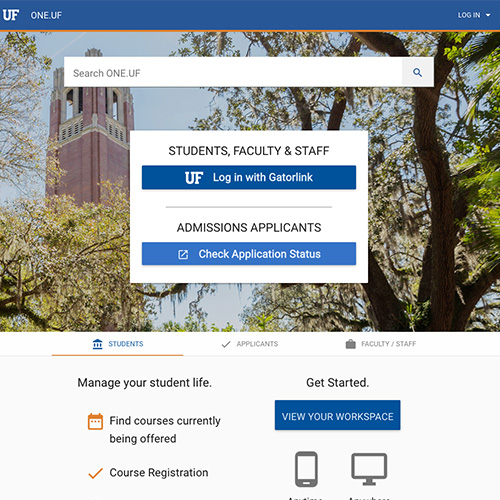FEAP 6- Professional Responsibility and Ethical Conduct
Printable Version (.pdf)
|
UNSATISFACTORY |
DEVELOPING |
ACCOMPLISHED |
EXCEPTIONAL |
| A student says, “I’msure I turned in that assignment, but the teacher lost it!” (D)
The teacher says, “I misplaced the writing samples for my class, but it doesn’t matter— I know what the students would have scored.” (D) On the morning of the field trip, the teacher discovers that five students have never turned in their permission slips. (D) The teacher doesn’t share test-taking strategies with his colleagues. He figures that if his students do well, it will make him look good. (D) The teacher does not attend PLC meetings. (D) The teacher does not attend any school function after the dismissal bell. (D) The teacher says, “I work from 8:30 to 3:30 and not a minute more. I won’t serve on any district committee unless they get me a substitute to cover my class. (D) The teacher endures the principal’s annual observations in her classroom, knowing that if she waits long enough, the principal will eventually leave and she will simply discard the feedback form, (D) Despite teaching high school honors mathematics, the teacher declines to join NCTM because it costs too much and makes too many demands on members’ time. (D) The teacher makes some errors when marking the last common assessment but doesn’t tell his colleagues. (D) The teacher does not realize that three of her neediest students arrive at school an hour early every morning because their mother can’t afford day care. (D) The teacher fails to notice that one of her kindergartners is often ill, looks malnourished, and frequently has bruises on her arms and legs. (D) When one of his colleagues goes home suddenly because of illness, the teacher pretends to have a meeting so that he won’t have to share in the coverage responsibilities. (D) The teacher does not file her students’ writing samples in their district community folders; doing so is time consuming, and she wants to leave early for summer break. (D) |
A student says, “I wasn’t in school to day, and my teacher’s website is out of date, so I don’t know what the assignments are!” (D)
The teacher says: “I’ve got all these notes about how the kids are doing; I should put them into the system, but I just don’t have time.” (D) On the morning of the field trip, the teacher frantically searches all the drawers in the desk for the permission slips and finds them just before the bell rings. (D) The teacher is polite but never shares any instructional materials with his grade partners. (D) The teacher attends PLC meetings only when reminded by her supervisor. (D) The principal says, “I wish I didn’t have to ask the teacher to “volunteer” every time we need someone to chaperone the dance. The teacher contributes to the district literacy committee only when requested to so by the principal. (D) The teacher listens to his principal’s feedback after a lesson but isn’t sure that the recommendations really apply in his situation. (D) The teacher says, “I have always known my grade partner to be truthful. If she called in sick, then I believe her.” (D) The teacher, considering staying late to help some of her students in after-school day care, realizes doing so would conflict with her gym class so she decides against staying. (D) The teacher notices a student struggling in his class and sends a quick e-mail to the counselor. When he doesn’t get a response, he assumes the problem has been taken care of. (D) When her grade partner goes out on maternity leave, the teacher says, “Hello” and “Welcome” to the substitute but does not offer any further assistance. (D) The teacher keeps his district-required grade book up to date, but enters exactly the minimum number of assignments specified by his department chair. (D)
|
The teacher creates a link on the class website that students can access to check on any missing assignments. (D)
The teacher’s grade book records student progress toward learning goals.The teacher creates a spreadsheet for tracking which students have paid for their school pictures. (D) The principal remarks that the teacher’s students have been noticeably successful since her teacher team has been focusing on instructional strategies during their team meetings. (D) The teacher has decided to take some of the free MIT courses online and to share his learning with colleagues. (D) The basketball coach is usually willing to chaperone the 9th grade dance because she knows all of her players will be there. (D) The teacher learns the district’s new online curriculum mapping system and enters all of her courses. (D) The teacher is trusted by his grade partners; they share information with him, confident it will not be repeated inappropriately. (D) Despite her lack of knowledge about dance, the teacher forms a dance club at her high school to meet the high interest level of her minority students who cannot afford lessons. (D) The teacher notices some speech delays in a few of her young students; she calls in the speech therapist to do a few sessions in her classroom and provide feedback on further steps. (D) The English department chair says, “I appreciate when Jim attends our after-school meetings; he always contributes something meaningful to the discussion. (D)
|
A student from each team maintains the database of current and missing assignments for the team. (D)
When asked about their progress in a class, a student proudly shows her data file and can explain how the documents indicate her progress toward learning goals. (D) When they bring in their permission slips for a field trip, students add their own information to the database. (D) The teacher leads the “mentor” group, devoted to supporting teachers during their first years in the profession.(D) The teacher hosts a book study group that meets monthly; he guides the book choices so that the group can focus on topics that will enhance their skills. (D) The teacher leads the school’s annual “Olympics” day, which involves all students and faculty in athletic events. (D) The teacher founds a local organization devoted to literacy education; her leadership has inspired teachers in the community to work on several curriculum and instruction projects. (D) The math department looks forward to their weekly meetings; their leader, the teacher is always seeking new instructional strategies and resources for them to discuss. (D) When the district adopts a new Web based grading program, the teacher learns it inside and out so that she can assist her colleagues with its implementation. (D) When the new teacher has trouble understanding directions from the principal, she immediately goes to the colleague who she can rely on for expert advice and complete discretion. (D) After the school’s intramural basketball program is discontinued, the teacher finds some former student-athletes to come in and work with his students, who have come to love the after-school sessions. (D) The teacher enlists the help of her principal when she realizes that a colleague has been making disparaging comments about some disadvantaged students. (D) |
Where noted, examples based on:
“(D)” – Danielson C. (1996). Enhancing professional practice: A framework for teaching.
Alexandria, Va: Association for Supervision and Curriculum Development.
“(M)” – Marzano, R. J. (2007). The art and science of teaching: A comprehensive
framework for effective instruction. Alexandria, Va: Association for Supervision and Curriculum Development.
Resources:
http://www.fldoe.org/edstandards/code_of_ethics.asp
http://www.fldoe.org/edstandards/
http://www.fldoe.org/edstandards/eie.asp
http://www.aaeteachers.org/index.php/about-us/aae-code-of-ethics




